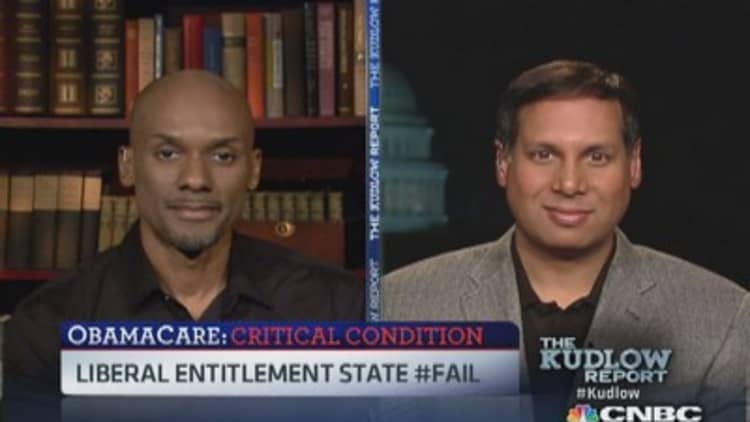A registered nurse recently told me she'll be glad when she goes on Medicare so she "won't have to pay any health insurance."
"Hold on," I said in reply. "Medicare is not free for you."
I also stressed to her that health-care costs are a major concern in retirement. And you don't want to underestimate these costs. Part of my job as a certified financial planner is to help clients understand Medicare coverage and the affordability of comprehensive coverage.
The Medicare premium for 2014 is $104.90 monthly for Part B, which covers outpatient services and products. In 2014, if you're single with a modified adjusted income over $85,000 or married with MAGI over $170,000, the Part B premium is $42 higher, plus an additional amount for Medicare drug coverage. With higher incomes the increases go up from there. Medicare premiums are deducted from your Social Security benefit. If you've deferred Social Security, then you're billed directly.
You'll also pay a higher monthly premium if you don't enroll for Medicare on time. You have to enroll three months before you turn 65 and not later than four months after that. If you miss this initial period, you must wait until the next general enrollment period to sign up — which could cost you if you're not covered by any plan in the meantime. The general enrollment period is from Jan. 1 through March 31 of each year, with coverage starting July 1.
If you're still in an employer group plan covering 20 or more employees, you have a special enrollment deadline after your employer coverage ends. To avoid any unnecessary payments or billing confusion, it may be beneficial to speak to your group-plan administrator about how the plan works with Medicare.
Medicare doesn't cover all health-care services, and it doesn't cover all of the costs of the services it does cover. There are two ways to ensure comprehensive coverage. Before you enroll in Medicare, have your decisions made on which avenue is best for you.
One way is to enroll in Medicare Advantage (or Part C) through a private insurer. These plans deliver all of the services of Medicare and usually include drug coverage. You need to enroll in parts A (covering hospital expenses) and B of Medicare and pay Medicare's premium before joining a Medicare Advantage plan.

You may pay few or no premiums to the private insurer, since Medicare pays the insurance company. Part C plans may offer additional benefits by providing preventative services and more efficient care by using an HMO-type format that, in most cases, are with a network of doctors and hospitals.
The other way is to use original Medicare, paired with a Medigap policy. With a Medigap policy from a private insurer, you have greater freedom to choose doctors and hospitals as long as they accept Medicare. Premium amounts can range from low to high among different insurance companies for the same benefits.
If you're very healthy, you may want to consider the Medigap F+ high-deductible plan to save on the premiums. You will also need to buy a stand-alone drug-coverage policy. Drug-coverage plans have widely different premium ranges, so it's important to check the plans carefully for benefits and premium costs.
Drug-coverage plans have widely different premium ranges, so it's important to check the plans carefully for benefits and premium costs.
Medigap policies don't change much from year to year. But if you opted for either Medicare Advantage or the stand-alone drug plan needed with Medigap, you'll have to monitor those plans. This means that every fall, you'll need to check your mail and carefully examine any changes in benefits or pricing being proposed in your plans. You're free to shop around for a new drug plan or Medicare Advantage plan during the open enrollment period, which runs from Oct. 15 through Dec. 7 each year.
There is much more to Medicare than I covered briefly here, but the main takeaway points are:
—Be aware of continuing health insurance costs.
—Do your research on the most cost-effective coverage for yourself.
—Enroll on time.
To start, a good reference is the downloadable Medicare & You 2014 handbook from the U.S. Dept. of Health and Human Services. And, of course, ask a certified financial planner to help you with Medicare planning.
Lauren Prince is a certified financial planner and principal of Prince Financial Advisory.




